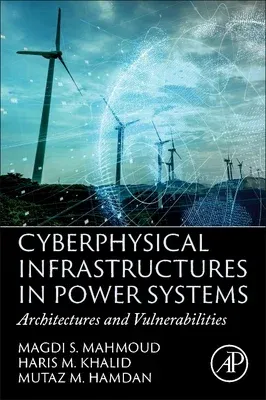Magdi S Mahmoud
(Author)Cyberphysical Infrastructures in Power Systems: Architectures and VulnerabilitiesPaperback, 28 October 2021

Qty
1
Turbo
Ships in 2 - 3 days
Only 2 left
Free Delivery
Cash on Delivery
15 Days
Free Returns
Secure Checkout

Print Length
424 pages
Language
English
Publisher
Academic Press
Date Published
28 Oct 2021
ISBN-10
0323852610
ISBN-13
9780323852616
Description
Product Details
Book Format:
Paperback
Country of Origin:
US
Date Published:
28 October 2021
Dimensions:
22.86 x
15.24 x
2.21 cm
ISBN-10:
0323852610
ISBN-13:
9780323852616
Language:
English
Pages:
424
Publisher:
Weight:
566.99 gm